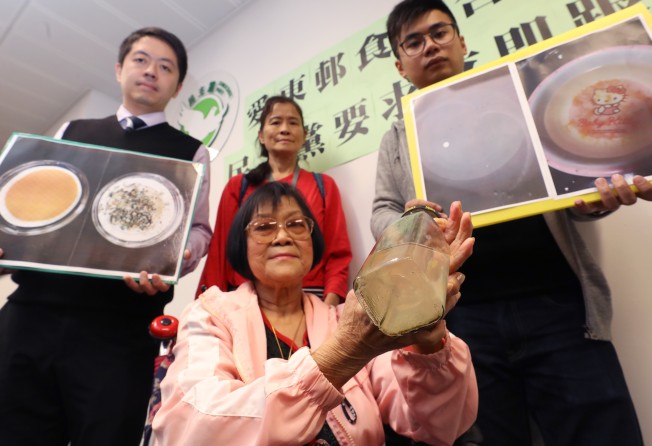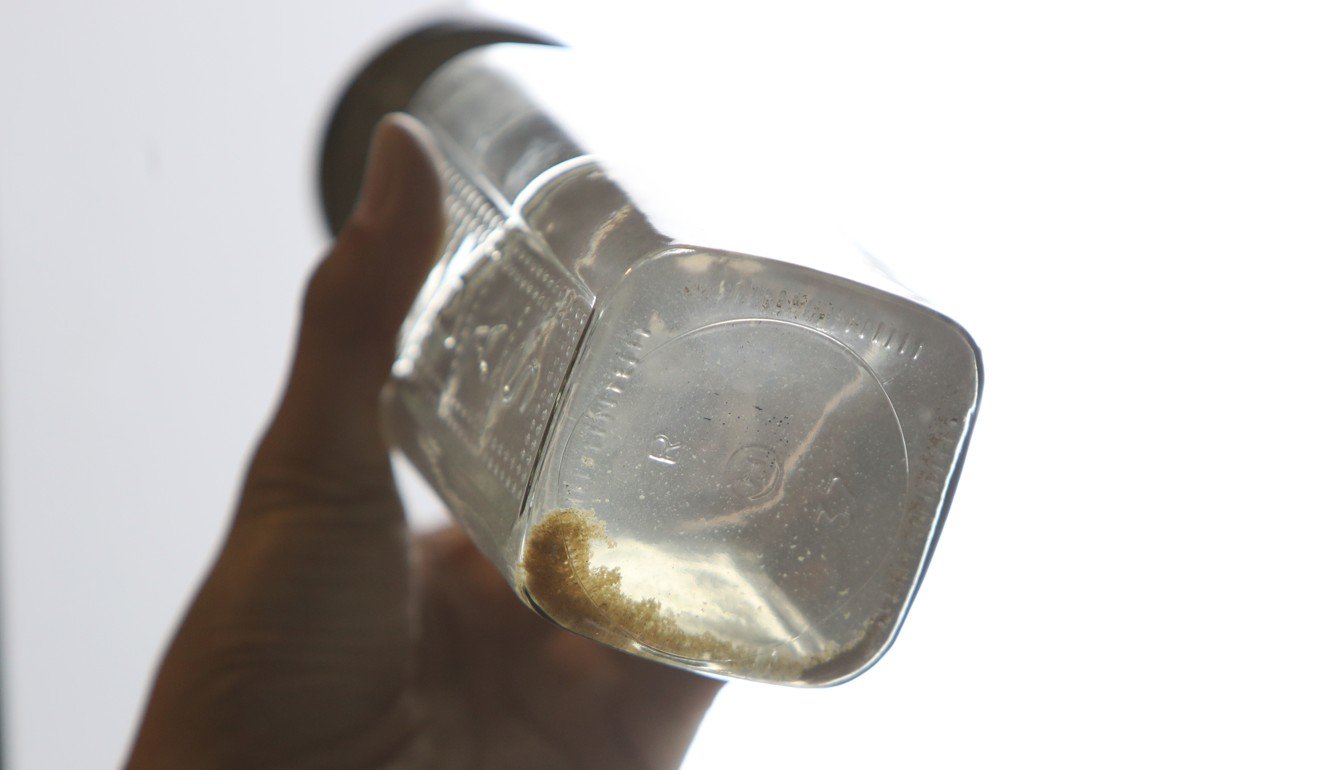Fears of a second Hong Kong water scare as heavy metals found in public estate tap water
The tests, conducted over the past month, show the water contains metallic impurities, including lead, aluminium, iron, zinc and copper

Fears of another Hong Kong water scare were ignited on Tuesday after lead and other toxic heavy metals were found in tap water at a public housing estate in Shau Kei Wan.
Members of the opposition Democratic Party tested the drinking water from taps in eight households in Oi Tung Estate after residents complained of foul-smelling water and skin conditions after showering.
“I do not know if it is the water but I feel itchy every time I shower,” said a woman who gave her surname as Cheng, 95, who has lived on the estate for more than eight years. “This is [like] a slow death.”
The tests, conducted over the past month, showed the water contained metallic impurities, including lead, aluminium, iron, zinc and copper. Lead made up 27.7 per cent of the impurities found – while in a separate test, 8.8 per cent of the impurities were found to be iron.
But the test results, released on Tuesday, did not prove the drinking water was unsafe for consumption, with a more comprehensive test needed to gauge the actual content of lead in the water.
The results came more than two years after excessive lead was found in tap water in many local housing estates, schools and public hospitals.
Chan Sik-chun, an engineer from the Water Supplies Department said on Tuesday: “We conducted an examination in Oi Tung Estate today and confirmed the water does not have impurities.”
In response to the residents’ complaints, he said: “The black particles are [from] the tarmac protective coating on government water pipes which has fallen off due to age.
“Our department tested water samples from the rooftop and underground storage and the relevant households on the estate in November. Results showed the quality of drinking water conformed to the department’s regulations and is safe for consumption.”
Ted Hui Chi-fung, a Democratic Party lawmaker, said on Tuesday that he had received more than 30 complaints about water, including a yellowish or brownish colour, metallic odour and impurities at Oi Tung Estate in the past year.
“Residents are worried about the safety of the water,” Hui said. “We learned from the laboratory that if this impure water is used for cooking, the metals might be dissolved in acids and absorbed into the body.”
He said although the Water Supplies Department, in response to the complaint, installed some filters in the estate late last year, the water quality remained questionable. He urged the department to conduct an in-depth investigation into the source of impurities and whether the water was safe for consumption.
According to World Health Organisation, long-term exposure to lead can cause kidney damage and result in high blood pressure in adults. Children are particularly vulnerable and may suffer from development delays through excessive exposure.
There is no known level of exposure that is considered safe.

Cheng said she had been feeling itchy after showering for the past year.
“After a shower, I feel as if many small needles are pricking my body,” she said. “I have been scratching so badly … I cannot sleep well at night.”
She said she saw a few doctors and had been using steroid cream and moisturising lotion but the problem persisted. She came across several neighbours suffering the same skin issue.
“Many residents in my estate are elderly people who live alone and are now using the steroid cream and lotion I am using.”
She said she now only drinks bottled water given by the party.
“I feel worried about drinking the brownish, smelly tap water.”
City officials have been reeling from a drinking water crisis that rocked the city in 2015 when water samples from 11 public housing estates, six kindergartens, 15 schools and two public hospitals contained excessive lead. More than 160 people were found to have higher levels of lead in their blood. The government spent millions delivering bottled water to affected residents too afraid to use tap water.
A commission led by a High Court judge in May last year blamed the exposure in 2015 on leaded solder in the pipes – despite a requirement that the Housing Authority, Water Supplies Department, their contractors and licensed plumbers use lead-free solder in freshwater pipes.
As a result, the government launched a citywide action plan in September to enhance monitoring of drinking water quality in all buildings, including both private and public flats, by drawing 670 samples from taps across Hong Kong annually to test for six metals – lead, nickel, chromium, cadmium, copper and antimony.
The plan has been criticised by opposition lawmakers as being ineffective.